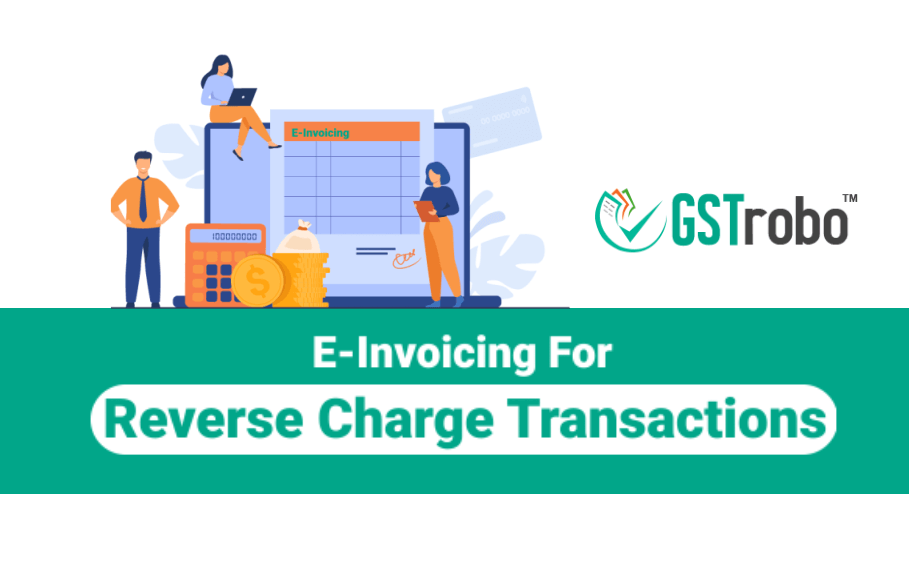E-Invoicing For RCM Transactions
The Government of India is implementing e-Invoicing in phases where,
1st Phase of e-invoicing was implemented on 1st Oct 2020, for all those taxpayers whose aggregate turnover exceeded INR 500 Crores.
2nd Phase of e-invoicing was implemented on 1st Jan 2021, for all those taxpayers whose aggregate turnover exceeded INR 100 Crores.
3rd Phase of e-invoicing was implemented on 1st April 2021, for all those taxpayers whose aggregate turnover exceeded INR 50 Crores.
4th Phase of e-invoicing will be implemented on 1st April 2021, for all those taxpayers whose aggregate turnover exceeds INR 20 Crores.
Under e-invoicing, the supplier needs to generate IRN and a signed QR code from the IRP. But under the Reverse charge transaction, the recipient needs to generate the invoice and needs to register the same on the portal. So, in this blog, we will know inside-out about e-invoicing for RCM transactions.

Reverse Charge Transactions
Here is the list of transactions that are covered under RCM:
- If a registered taxable person renders any service or buys any good from an unregistered taxable person. The recipient needs to pay GST under Reverse Charge Mechanism (RCM).
- Any goods or services provided to an e-com operator. E-com operators need to pay GST under RCM.
- Supply of notified goods and services such as tobacco, silk, raw cotton, or services rendered from an insurance agent. The recipient needs to pay GST under Reverse Charge Mechanism (RCM).
E-Invoicing For Reverse Charge Mechanism (RCM) Transactions
As per the e-invoicing provision, reverse charge transactions are covered under e-Invoicing. Here is the list of RCM transactions for which e-Invoicing is applicable:
Supply of notified goods or/and services such as tobacco, silk, raw cotton, or services rendered from an insurance agent. The recipient needs to pay GST under Reverse Charge Mechanism (RCM).
Any goods or services provided to an e-com operator. E-com operators need to pay GST under RCM and generate IRN and signed QR codes from the IRP.
However, there is a catch when e-invoicing will not be applicable on the above-mentioned RCM transactions:
- If the taxpayer is not covered under the e-invoicing mandate then he/she will not be liable to generate an e-invoice for the RCM transaction.
- Such RCM transaction must be a Business to Business (B2B) transaction.
Generating E-Invoice for RCM transactions
The taxpayers who are generating an e-invoice for RCM transactions using the IRP need to validate whether the optional column number 1.7, Reverse Charge is set as ‘Y’ (Yes) or not.
RCM Transactions on Which E-Invoicing is Not Applicable
As we have discussed earlier, when a registered taxable person renders any service or buys any good from an unregistered taxable person under section 9(4) of CGST Act, 2017. The recipient needs to pay GST under Reverse Charge Mechanism (RCM). However, e-invoicing will not be applicable on this RCM transaction and the recipient needs to generate a GST compliant invoice, as an unregistered person cannot raise the same.
